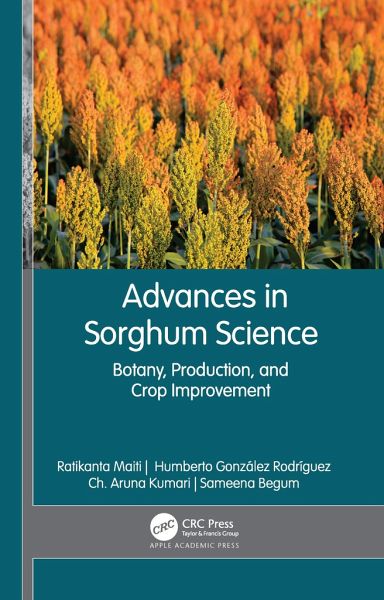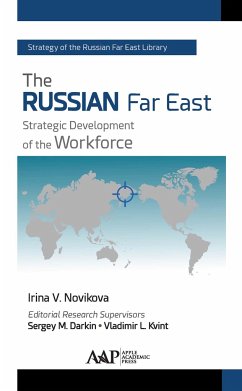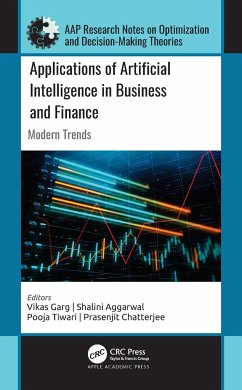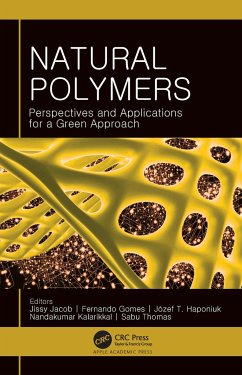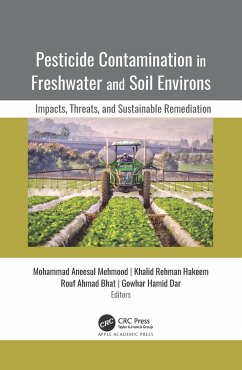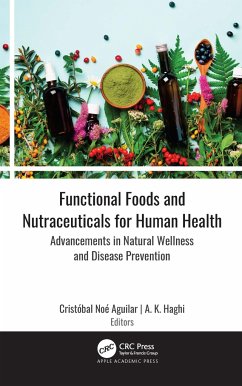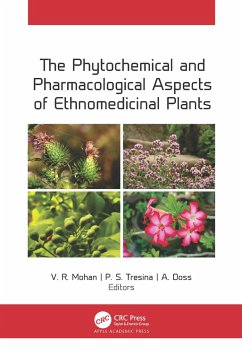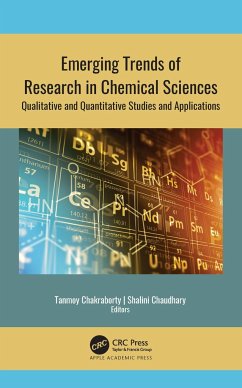Gebundenes Buch
Advances in Sorghum Science
Botany, Production, and Crop Improvement
Herausgeber: Maiti, Ratikanta; Kumar, Ch. Aruna; Rodríguez, Humberto González
Versandkostenfrei!
Versandfertig in 1-2 Wochen
Weitere Ausgaben:

PAYBACK Punkte
80 °P sammeln!




Provides an easy-to-read and comprehensive treatment of the sorghum crop. It covers the various aspects of the sorghum crop, starting from its origin, to its domestication, and going on to biotechnology of the crop.
Ratikanta Maiti, PhD, DSc, was a world-renowned botanist and crop physiologist. He worked on jute and allied fibers at the former Jute Agricultural Research Institute (ICAR), India, and also worked as a plant physiologist on sorghum and pearl millet at ICRISAT (International Crops Research Institute for the Semi-Arid Tropics) for 10 years. For, he was a professor and research scientist at three different universities in Mexico. He also worked for six years as a Research Advisor at Vibha Seeds, Hyderabad, India, and as a Visiting Research Scientist for five years at the Universidad Autonoma de Nuevo Leon, Facultad de Ciencias Forestales, Nuevo Leon, Mexico Mexico. As the author of more than 40 books and about 500 research papers, he won several international awards, including an Ethno-Botanist Award (USA) sponsored by Friends University, Wichita, Kansas, the United Nations Development Programme; a senior research scientist award offered by Consejo Nacional de Ciencia y Tecnología (CONNACYT), Mexico, and gold medal from India 2008 offered by ABI. He was Chairman of the Ratikanta Maiti Foundation and chief editor of three international journals. Dr. Maiti died in 2019. Humberto González Rodríguez, PhD, is a faculty member at the Autonomous University of Nuevo Leon, Facultad de Ciencias Forestales (School of Forest Sciences), Nuevo Leon, Mexico. He received his PhD in Plant Physiology from Texas A&M University under the advice of Dr. Wayne R. Jordan and Dr. Malcolm C. Drew. He is currently working on water relations and plant nutrition in native woody trees and shrubs, northeastern Mexico. In addition, his research includes nutrient deposition via litterfall in different forest ecosystems. Dr. Rodríguez teaches chemistry, plant physiology, and statistics. Ch. Aruna Kumari, PhD, is Assistant Professor in the Department of Crop Physiology at Agricultural College, Jagtial, Professor Jaya Shankar Telangana State Agricultural University (PJTSAU), India. She has six years of teaching experience at PJTSAU and seven years of research experience at varied Indian Council of Agricultural Research institutes as well as at Vibha Seeds. She is the recipient of a Council of Scientific & Industrial Research fellowship during her doctoral studies and was awarded a Young Scientist Award for Best Thesis Presentation at the National Seminar on Plant Physiology. She teaches courses on plant physiology and environmental science and has taught seed physiology and growth, yield, and modeling courses. She is the author of book chapters in Advances in Cotton and Chili and Food Security for Sustainable Development. She was one of editors of the book Glossary of Plant Physiology and editor of two books, Advances in Bio-Resource and Stress Management and Applied Biology of Woody Plants. She had also published many research publications in national and international journals. Sameena Begum is a young researcher. She completed a BSc degree in Agriculture with distinction and an MSc degree in Genetics and Plant Breeding with distinction from the College of Agriculture, Professor Jayashankar Telangana State Agricultural University, Hyderabad, India. During her master's degree program, she conducted research on the combining ability, gall midge resistance, yield, and quality traits in hybrid rice (Oryza sativa L.) and identified two highly resistant hybrids. She has been an author of book chapters in two books, Experimental Ecophysiology and Biochemistry of Trees and Shrubs and Advances in Cotton Science: Botany, Production, and Crop Improvement, which she co-edited.
Produktdetails
- Verlag: Apple Academic Press
- Seitenzahl: 292
- Erscheinungstermin: 16. Juli 2021
- Englisch
- Abmessung: 235mm x 157mm x 20mm
- Gewicht: 577g
- ISBN-13: 9781771889674
- ISBN-10: 1771889675
- Artikelnr.: 62233834
Herstellerkennzeichnung
Libri GmbH
Europaallee 1
36244 Bad Hersfeld
gpsr@libri.de
Für dieses Produkt wurde noch keine Bewertung abgegeben. Wir würden uns sehr freuen, wenn du die erste Bewertung schreibst!
Eine Bewertung schreiben
Eine Bewertung schreiben
Andere Kunden interessierten sich für




